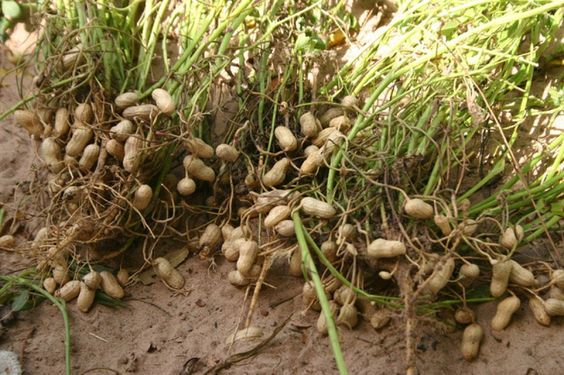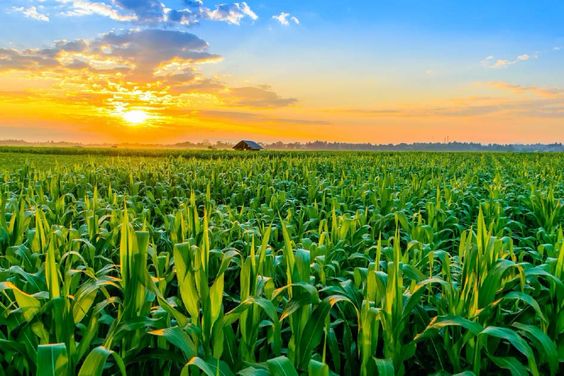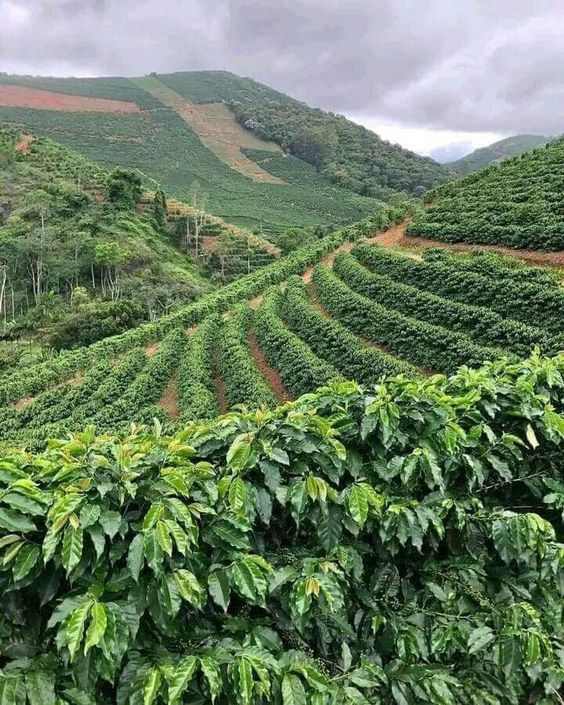Smart Organic Peanut Cultivation: A Holistic Approach to Sustainable Agriculture
Organic Peanut Cultivation,The global shift towards sustainable and organic food production has underscored the need for innovative agricultural practices. Peanuts, a versatile and nutritious crop, offer significant potential for organic cultivation. By integrating smart agriculture technologies, farmers can optimize peanut production, enhance soil health, and minimize environmental impact. This article delves into the intricacies of organic peanut cultivation, emphasizing the role of smart agriculture in achieving higher yields, improved quality, and sustainable practices.
Organic peanut cultivation adheres to strict guidelines that prohibit the use of synthetic fertilizers, pesticides, and genetically modified organisms (GMOs). Instead, farmers rely on natural methods to enhance soil fertility, pest control, and crop health. This approach promotes biodiversity, improves water quality, and reduces the risk of chemical residues in the final product.
Contents
- 0.1 Key Components of Smart Agriculture for Peanut Cultivation
- 0.2 Benefits of Smart Organic Peanut Cultivation
- 0.3 Objectives of Smart Organic Peanut Cultivation
- 0.4 Explanation of Key Processes
- 0.5 Usefulness of Smart Agriculture Technologies
- 0.6 Advantages of Organic Peanut Cultivation
- 0.7 Challenges and Opportunities
- 1 Research Findings and Recommendations
- 2 Future Perspectives
Key Components of Smart Agriculture for Peanut Cultivation
- Precision Agriculture:
- Soil mapping and analysis to determine nutrient deficiencies and optimize fertilizer applications.
- Variable-rate technology for precise seed planting and chemical application.
- GPS-guided equipment for efficient field operations.
- IoT and Sensors:
- Real-time monitoring of soil moisture, temperature, and nutrient levels.
- Early detection of pests and diseases through image analysis and sensor data.
- Automated irrigation systems based on soil moisture data.
- Data Analytics:
- Predictive modeling for weather patterns, crop yield, and disease outbreaks.
- Optimization of resource utilization through data-driven decision-making.
- Automation and Robotics:
- Autonomous harvesting and weeding systems to reduce labor costs and increase efficiency.
- Drone technology for crop monitoring, spraying, and pollination.
Benefits of Smart Organic Peanut Cultivation
- Environmental Sustainability:
- Reduced reliance on synthetic inputs, leading to improved soil health and water quality.
- Enhanced biodiversity through the promotion of beneficial insects and microorganisms.
- Mitigated climate change impacts through carbon sequestration in the soil.
- Economic Viability:
- Increased crop yields and quality through optimized resource management.
- Reduced production costs by automating labor-intensive tasks.
- Premium prices for organic peanut products.
- Social Responsibility:
- Improved livelihoods for farmers through increased income and reduced health risks.
- Enhanced food safety and consumer trust in organic products.
- Contribution to rural development and job creation.
Objectives of Smart Organic Peanut Cultivation
- Maximize peanut yield while maintaining soil health and organic standards.
- Optimize water and nutrient use efficiency to reduce environmental impact.
- Implement effective pest and disease management strategies without synthetic chemicals.
- Improve the overall profitability of peanut farming through technology adoption.
- Contribute to the development of sustainable and resilient agricultural systems.
Explanation of Key Processes
- Soil Preparation:
- Organic matter enrichment through composting and cover cropping.
- Soil testing to assess nutrient status and pH levels.
- Tillage practices that minimize soil erosion.
- Planting and Seed Selection:
- Variety selection based on adaptation to local conditions and disease resistance.
- Proper seed spacing and depth for optimal germination.
- Use of certified organic seeds.
- Nutrient Management:
- Application of organic fertilizers such as compost, manure, and plant-based inputs.
- Nutrient cycling through crop rotation and cover cropping.
- Soil testing to monitor nutrient availability.
- Pest and Disease Control:
- Integrated pest management (IPM) strategies including crop rotation, cultural practices, and biological control agents.
- Monitoring for pests and diseases using early warning systems.
- Use of organic pesticides as a last resort.
- Harvesting and Post-Harvest Handling:
- Timely harvesting to optimize yield and quality.
- Careful handling to prevent damage and contamination.
- Drying and storage under appropriate conditions to maintain product quality.
Usefulness of Smart Agriculture Technologies
- Precision Farming: Optimizes resource utilization and reduces input costs.
- Data-Driven Decision Making: Enables proactive management of crop health and production.
- Automation: Increases efficiency and reduces labor requirements.
- Market Access: Facilitates traceability and certification for organic products.
Advantages of Organic Peanut Cultivation
- Enhanced Soil Health: Improved soil structure, fertility, and water retention.
- Reduced Environmental Impact: Minimized pollution and greenhouse gas emissions.
- Improved Product Quality: Higher nutritional value and better taste.
- Consumer Demand: Growing market for organic and sustainably produced foods.
- Risk Mitigation: Reduced dependence on synthetic inputs and volatile market prices.
Challenges and Opportunities
- Yield Stability: Organic systems may initially experience lower yields compared to conventional methods.
- Weed Management: Organic weed control can be challenging, requiring diligent management.
- Market Development: Expanding market access for organic peanuts is essential.
- Technology Adoption: Overcoming the initial investment in smart agriculture technologies.
- Knowledge Transfer: Providing farmers with the necessary training and support.
Research Findings and Recommendations
Several research studies have highlighted the benefits of smart organic peanut cultivation. Key findings include:
- Improved soil health: Organic practices combined with precision agriculture enhance soil structure, organic matter content, and nutrient availability.
- Increased water-use efficiency: Smart irrigation systems based on real-time soil moisture data reduce water consumption and prevent waterlogging.
- Enhanced pest and disease management: Early detection and targeted interventions using IoT and image analysis minimize crop losses.
- Higher yields and quality: Precision agriculture, optimized nutrient management, and proper harvesting practices contribute to increased peanut yield and improved product quality.
- Economic viability: While initial investments in smart agriculture technologies may be high, long-term benefits include increased profitability and reduced production costs.
Based on these findings, the following recommendations are offered:
- Promote research and development: Invest in research to advance smart agriculture technologies specifically tailored to organic peanut cultivation.
- Provide farmer training: Offer comprehensive training programs on organic principles, precision agriculture, and IoT applications.
- Create supportive policies: Develop policies that incentivize the adoption of smart organic farming practices and provide financial support for farmers.
- Foster collaboration: Encourage partnerships between farmers, researchers, and industry stakeholders to share knowledge and resources.
- Build awareness: Raise public awareness about the benefits of organic peanut cultivation and the role of smart agriculture in achieving sustainable food systems.
Future Perspectives
The future of organic peanut cultivation is bright, with continued advancements in smart agriculture technologies. Emerging areas of focus include:
- Artificial intelligence: Leveraging AI for predictive modeling, crop optimization, and decision support systems.
- Drones: Expanding drone applications for crop monitoring, pollination, and targeted spraying.
- Blockchain: Ensuring transparency and traceability of organic peanut products.
- Vertical farming: Exploring controlled environment agriculture for year-round peanut production.
By embracing these innovations, the peanut industry can achieve greater sustainability, resilience, and profitability while meeting the growing demand for organic and healthy food.
Smart organic peanut cultivation offers a promising path towards sustainable and profitable agriculture. By integrating advanced technologies with organic principles, farmers can enhance crop productivity, protect the environment, and meet the growing demand for organic products. Continued research, development, and adoption of smart agriculture practices are essential for the long-term success of organic peanut cultivation.




